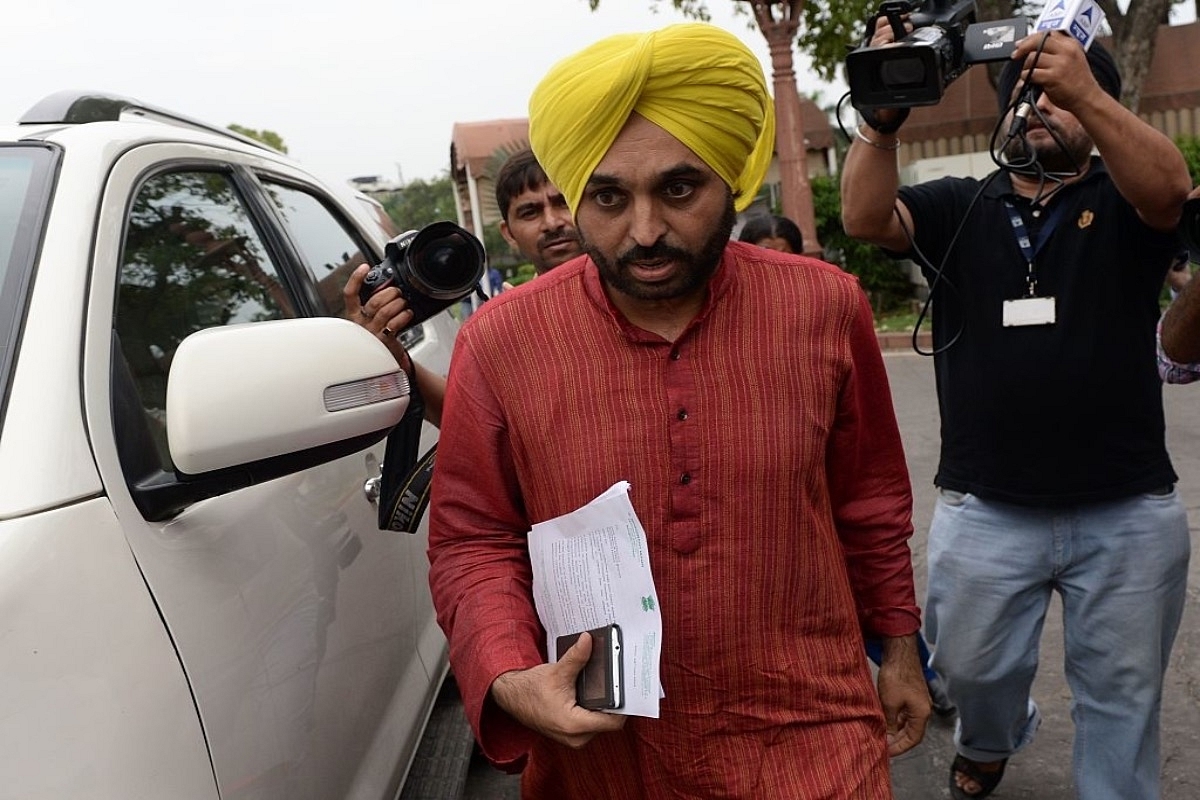News Brief
Loans To Become Expensive In Punjab? Mann Govt Passes Three Bills To Increase Revenue Amid Rising Debt Burden

Punjab Chief Minister Bhagwant Mann.
The Punjab Vidhan Sabha on Wednesday (29 November) passed three amendment Bills aimed at consolidating resources. These bills allow the government to impose a 2 per cent stamp duty on property transfers via General Power of Attorney (GPA), and a registration fee of 0.25 per cent on home and vehicle loans approved by subsequent banks.
This comes amid an is estimation that the debt burden on Punjab will grow to Rs 3.27 lakh crore by the end of this fiscal. At the end of the last fiscal, the state's debt stood at Rs 3.12 lakh crore.
The Transfer of Property (Punjab Amendment) Bill, 2023 and the Indian Stamp (Punjab Amendment) Bill, 2023, both address the issue of property transfer via GPA. On the other hand, the Registration (Punjab Amendment) Bill, 2023 pertains to the imposition of a registration fee on housing and vehicle loans. This bill enforces the obligation for the loan recipient to register the loan.
The conveyance of property to a spouse, lawful heir, or blood relatives will not incur any stamp duty, according to a government official. According to Indian Express, The official noted that in October 2022 alone, there were 7,000 GPAs registered, with 90 per cent of these related to standard sales and the remaining 10 per cent representing authentic property transfers.
"Upon conducting initial estimations, we determined that the state was missing out on a minimum of Rs 850 crore in stamp duty from property transfers via GPAs. We anticipate that the amendments to the three Bills will generate at least Rs 1,500 crore for the state treasury," the official said.
The official noted that while banks levy a processing fee on loans granted to state residents, the government receives no portion. However, with the revision of Section 17 of the Property Act, the government will now impose a registration fee of 0.25 per cent on the total loan approved by the bank, although this fee will not surpass Rs 1 lakh.
According to the official, this is beneficial for the state government as up until now, only the banks have been profiting from these loans, while the government hasn't received any benefits. However, the situation will change, and the government will also start receiving a certain amount from these transactions.
He further added that the government needs to gather resources. In order to facilitate a smooth transition to the new phase of loan registration, the government will delegate the powers of the Sub Registrar to the manager of the respective bank.
Previously, banks would mortgage both vehicle registration certificates and property, occasionally claiming they had misplaced them, which caused issues for residents. Now, banks are required to be accountable, necessitating the registration of every loan and the recording of every registry in their possession, according to the official.
He further clarified that the Act, which was previously only applicable in India's metropolitan cities, has now been extended to not only include towns and cities, but every village in Punjab, under the scope of the amendment.
The functionary stated that the registration of General Power of Attorney (GPA), which necessitates the collection of stamp duty, would not only generate revenue for the state treasury, but also safeguard the interests of buyers.
The practice of selling property via GPA and Agreement to Sell often results in a 'defective title.' If the seller either passes away or reneges on their agreement, the buyer could suffer significant financial losses.
By making the Power of Attorney (POA) a revocable document, we also provide a layer of protection for buyers. These changes will be implemented through amendments to the Stamp Duty Act of 1899.
He explained that nearly every state in the nation had implemented the amendment following a directive from the Supreme Court, aimed at safeguarding buyers.
Punjab, during the SAD-BJP rule, had also submitted an affidavit to the Supreme Court and carried out the amendment in 2013. However, the mandatory registration of GPAs was rescinded in 2016, just before the 2017 elections, due to political pressure. The Congress government was never able to implement the amendment because of the same political pressure.
In June, prior to the Vidhan Sabha session on 19-20 June, three Bills were forwarded to Governor Banwarilal Purohit, who initially withheld his approval. However, following the state's appeal to the Supreme Court, the Governor recently gave his consent. These Bills will now return to the Governor and, upon receiving his assent, will be officially notified. The resulting Act will take immediate effect following this notification.
Support Swarajya's 50 Ground Reports Project & Sponsor A Story
Every general election Swarajya does a 50 ground reports project.
Aimed only at serious readers and those who appreciate the nuances of political undercurrents, the project provides a sense of India's electoral landscape. As you know, these reports are produced after considerable investment of travel, time and effort on the ground.
This time too we've kicked off the project in style and have covered over 30 constituencies already. If you're someone who appreciates such work and have enjoyed our coverage please consider sponsoring a ground report for just Rs 2999 to Rs 19,999 - it goes a long way in helping us produce more quality reportage.
You can also back this project by becoming a subscriber for as little as Rs 999 - so do click on this links and choose a plan that suits you and back us.
Click below to contribute.
Latest